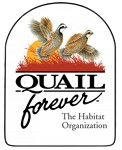Masked Bobwhite Update
January 9, 2024 /
| Masked Bobwhite Update |

| It has been a great year for the endangered Masked Bobwhite (MBW) Quail at Buenos Aires National Wildlife Refuge (BANWR). Of the birds released last summer, it is estimated 60-80 are doing well in the wild. They were in 4-5 coveys that refuge personnel were able to monitor. Birds started breaking up in early April into pairs or other small groups. The mating call of the male MBW have been heard in the wild for the first time in many years. Chapter volunteers and others have completed significant habitat work to support these birds including mesquite removal and half cutting smaller trees. Quail friendly bushes have also been recently planted. More habitat work is needed, expect to see additional volunteer opportunities this fall. U.S. Fish and Wildlife Service is planning additional releases in the near future. Wild Male Northern Bobwhite Quail were captured in Texas and brought to BANWR. These birds will be neutered to prevent cross breeding. Each neutered bird will be paired with 15 two week old pen-raised MBW chicks in a flight pen for approximately one week as a surrogate parent. The surrogate will be fitted with a radio collar and the group will be released into the wild. The total release should total 1000-1200 MBW chicks with groups at different locations on the refuge. Why male surrogates? Both sexes have been tried, the chicks seem to bond a little quicker with the males and males are a little easier to neuter. These newly released birds will covey up with birds from last season including new chicks born in the wild. As the year progresses, the radio collar batteries and in some cases the birds with collars will die. As this occurs, young pen raised adult MBW females will be fitted with fresh collars and released to join the coveys and allow continued tracking. This will also bolster the number of breeding females. Volunteers Needed Volunteer help is needed for the next couple of months to water the new bushes until monsoon rains start. It takes 1-2 hours. If you can help, please contact Rebecca Chester at rebecca_chester@fws.gov or (505) 270-1492 if you are able to help. |

